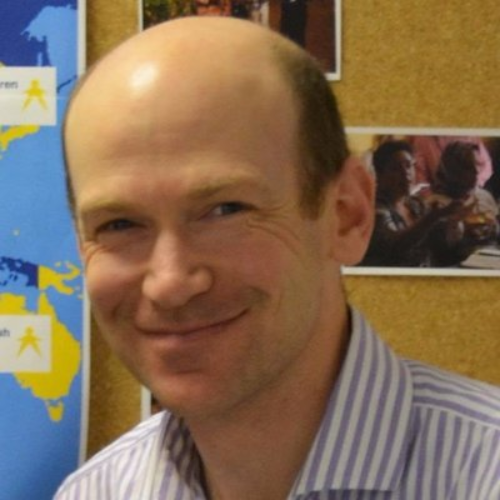Hugh Salmon is the Director of the Global Social Service Workforce Alliance. He leads a range of initiatives implemented by the Alliance at global, regional and national level, focused on assessing and strengthening the social service workforce, making the case for more sustained investment in the workforce, and exploring the role of the workforce in a range of contexts, including in social protection (combining cash with support services), in the health, justice and education sectors, and in humanitarian situations. Hugh first gained experience of social work as a volunteer in Jordan and the UK in the late 1980s and early 1990s. He qualified as a social worker in London in 1995, then after five years’ experience as a social worker in the UK, he began working internationally as a social work trainer and advisor, particularly in the area of child protection and alternative care system reform, first in Eastern Europe, and later across Asia, Africa, Latin America and the Middle East. He now has over 20 years of international experience in supporting and leading efforts to strengthen the social service workforce, and networks of volunteers, practitioners and civil society organisations. He is based with his family in London, UK.
The Global Social Service Workforce Alliance has over 3,000 members worldwide. It is a non-profit network, hosted by the US-based Tides Center, and its current projects are funded by USAID, UNICEF, Martin James Foundation and private donations.
https://www.socialserviceworkforce.org/
Abstract
Abstract Title
The role of the social service workforce in schools in preventing violence, protecting children, and supporting families
The Global Social Service Workforce Alliance and UNICEF have launched a technical note which summarises how violence against children and other child protection concerns can be addressed more effectively when social service workers are integrated into school structures. Since children spend a significant amount of time each day in school, school-based staff play a vital frontline role in identification and response. When appropriately capacitated, resourced and supported, social service workers located in or working with schools can play a major role in addressing concerns related to violence, abuse and neglect, mental health, and psychosocial well-being. This paper includes a review of evidence across the globe, and finds that teachers and school administrators usually have primary responsibility for reporting child protection concerns, but in many countries, they have neither the training and support, nor the time, to recognize signs and symptoms of abuse or violence, to record concerns, or to make referrals. A review of studies also finds that teachers in different contexts tend to under-report child abuse due to lack of knowledge about the signs and symptoms of abuse, unclear reporting procedures and fear of making inaccurate reports. While it is recommended that teacher and administrator training and support remain a central component of child protection within schools, child protection and well-being concerns can be addressed more effectively if the responsibility is shared with social workers, or others in the social service workforce. Properly trained and supported social service workers can work with teachers and administrators to establish an overall protective climate and culture in schools that is safe, non-violent and inclusive. They can provide intensive and specialized support for at-risk affected students. They can also connect interventions at school with the wider child protection system and effectively follow-up on child protection concerns when making external referrals and collaborating with other agencies and community actors.

